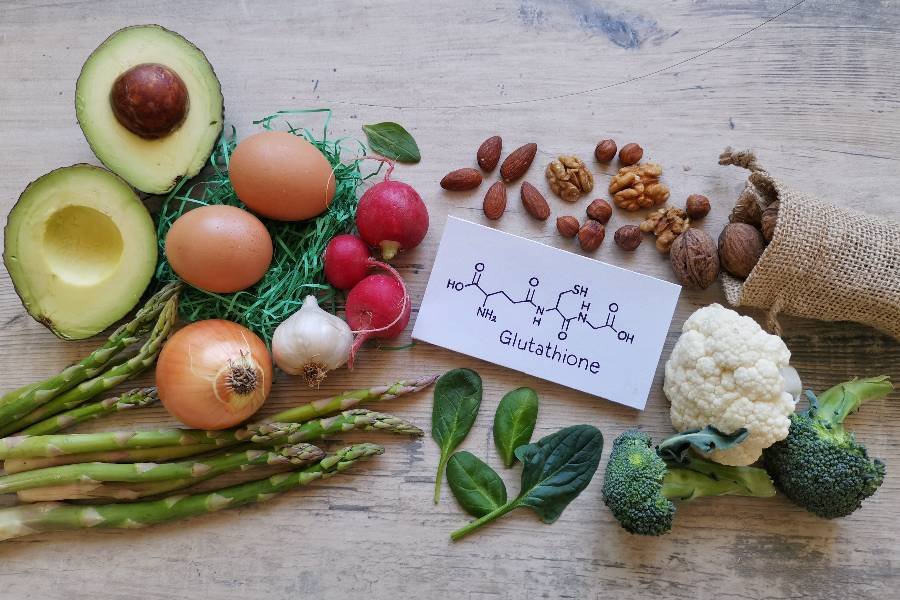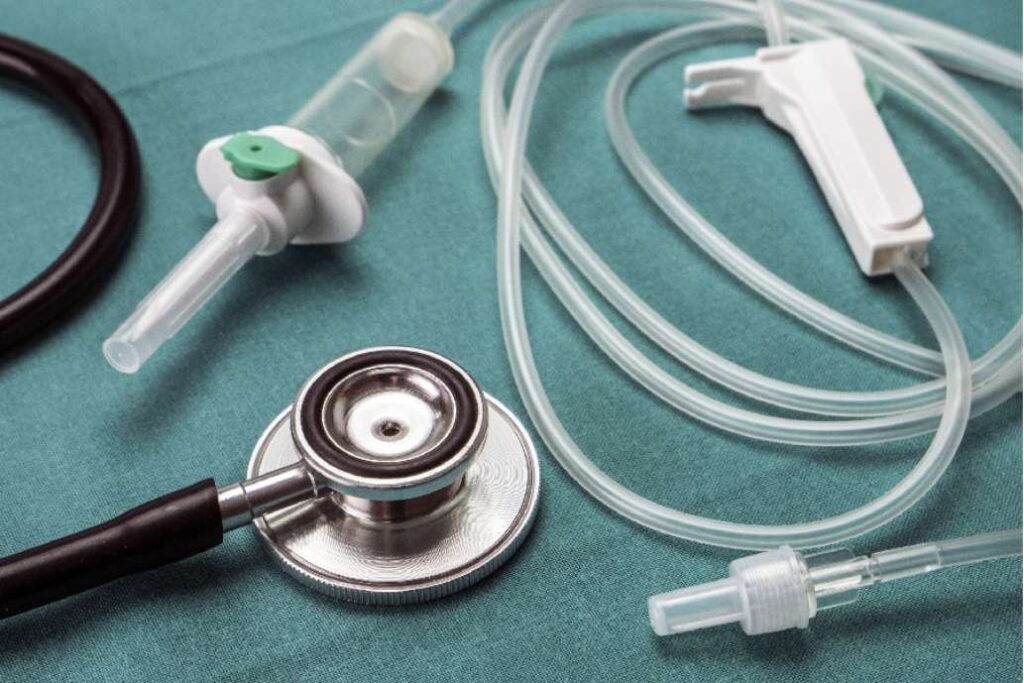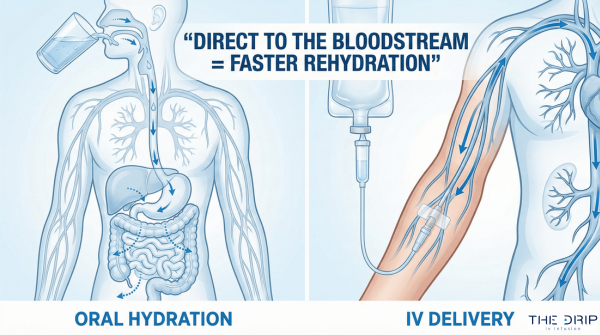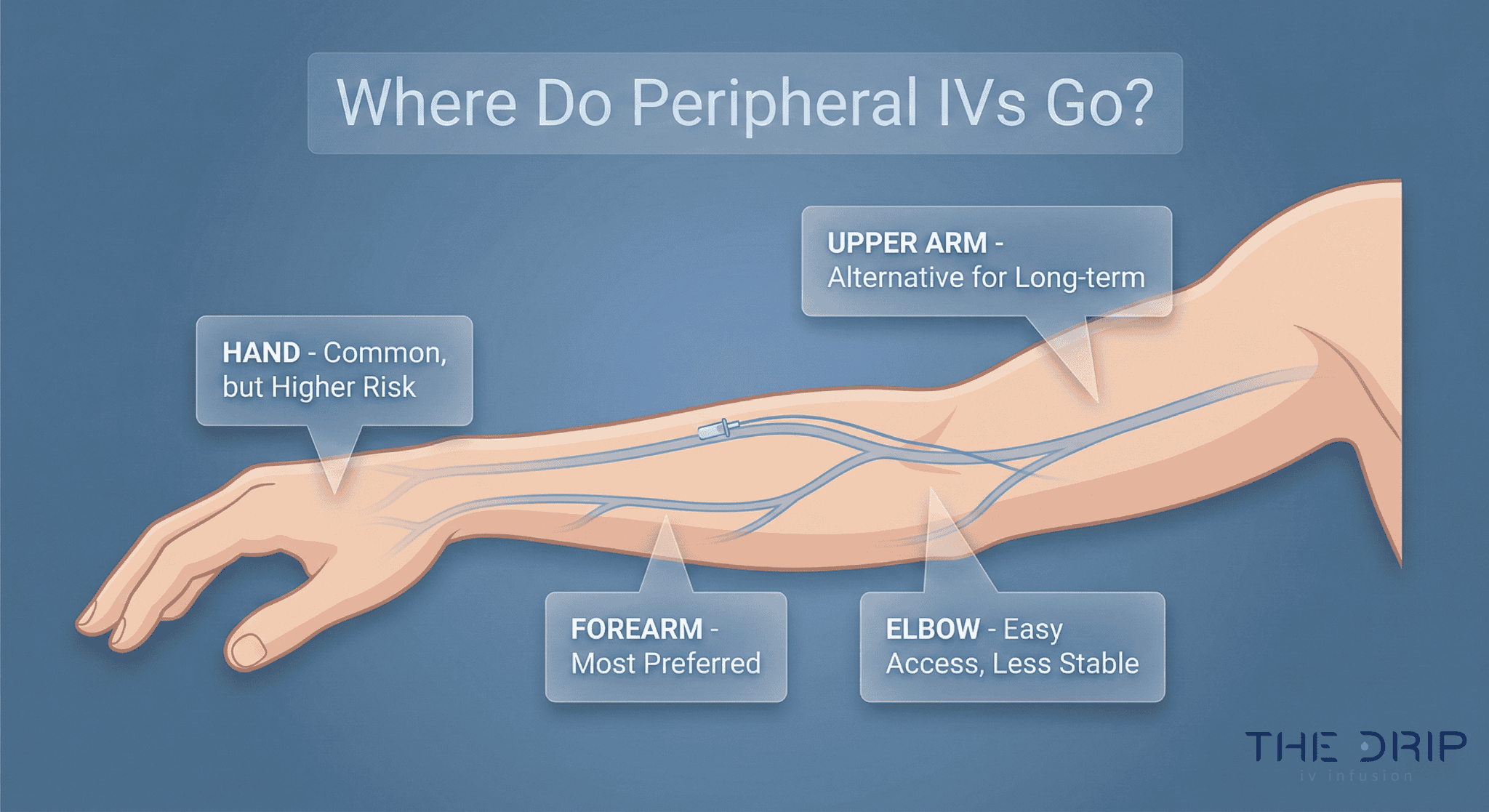IV hydration has become a popular method used for treating various medical conditions. While some use it as an immune booster when battling a cold, others try to lessen hangover symptoms. You may wonder which is best since many different IV cocktails are made from various ingredients. So, what is glutathione IV therapy?
By discovering its uses and potential benefits, you’ll determine if it’s the right course of action for your specific situation. You’ll also understand how glutathione affects your body and why it’s so important.
Continue reading to inform yourself about the uses of glutathione IV fluids and why you should consider them.
What Is Glutathione IV Therapy?
So, what is IV glutathione, and why is it so important? The first thing you should know is that any IV therapy is administered through intravenous injections.
This way, the needed nutrients and medications skip the digestive system. Instead of waiting for them to break down, they directly enter your bloodstream. Due to the intravenous type of application, the treatment might be fast-acting and efficient.
That being said, glutathione IV therapy is the process of intravenously injecting glutathione into your body. When getting these IV fluids, you’ll be receiving a mixture of essential nutrients. It’s commonly combined with vitamins C and B, zinc, magnesium, and other medications to achieve optimal results.
To better understand its use, you must first understand this nutrient’s importance and how it affects your body.
What is glutathione?
Glutathione is a common tripeptide naturally produced in the liver. It can be found in various species of fungi, animals, and plants. This substance is made of the amino acids known as cysteine, glycine, and glutamic acid. Since it’s found in high levels and contributes to many processes in the body, it’s crucial to keep them balanced.
Even though it’s only natural for these levels to decrease as you age, a glutathione deficiency can lead to many health risks. Furthermore, those with an alcohol use disorder and an unhealthy diet may also experience a drop in substance.
When there’s a deficit in the natural levels of glutathione, several symptoms may arise, including:
Headaches
Weakness and fatigue
Dizziness
Difficulty concentrating
Sleep problems
Depression

Source: shutterstock.com / Photo Contributor: Danijela Maksimovic
How glutathione affects the body
Since glutathione plays an important role in many different body processes, it has several uses. The most popular ones may be:
Detoxification
Boosting the immune system
Battling inflammation
Tissue repair
Detoxification
This tripeptide is a well-known antioxidant. It might protect the body from any free radicals that may cause you harm. These molecules are caused by pollution, cigarette smoke, and even stress.
Even though they’re naturally caused by cellular oxidation, the problem begins when the organism isn’t capable of processing large numbers of them. Thus, when frequently exposed to free radicals, it might cause damage on a cellular level, leading to:
Headaches
Low levels of energy and fatigue
Joint pain
Signs of aging, such as wrinkles and skin dryness
Risk of other medical complications
Another dangerous issue that may arise is oxidative stress. An imbalance of free radicals and antioxidants causes this condition. So, when the body doesn’t have enough antioxidants to subside the molecules, it might lead to dangerous chronic diseases like cancer and diabetes.
Thus, research shows that glutathione may play a significant role in battling oxidative stress due to its antioxidant properties. It binds together with the free radicals and might help remove them from the organism.
Boosting the immune system
The second important function of glutathione is its role as an immune booster. Research shows that the immune system works best when there’s a balanced level of glutathione in the lymphoid cells.
Furthermore, by maintaining a strong immune system, this element may protect your body from any microbial or parasitic infections. It’s able to do so by regulating the levels of white blood cells that a chronic infection could possibly suppress. Therefore, it may be beneficial for treating Lyme disease, mononucleosis, and herpes.
Battling inflammation
Continuous exposure to oxidative stress may lead to inflammation. Since glutathione boosts the immune system, it might help reduce this dreaded condition.
The way it may control the inflammation is either by stimulating or inhibiting the immunological response. Having balanced levels of this element may help prevent and treat any adverse effects.
Remember that even subtle health conditions could induce inflammatory responses. What seems as a simple allergy or injury can lead to further problems.
So, it’s especially important to keep the levels of glutathione checked if you’re exposed to environmental toxins or stress. If not treated, the inflammation may not subside, leading to other chronic issues.
Moreover, patients who struggle with chronic illnesses such as cancer and diabetes also experience high levels of inflammation. Even though IV fluids containing glutathione aren’t a cure, they may cause relief to some unwanted symptoms.
Tissue repair
Since it has anti-inflammatory properties, glutathione might also help with tissue repair. It’s important to note that free radicals may also cause tissue damage that prevents the system from functioning properly.
Thus, research shows that glutathione might also repair the damage caused by these molecules. This is achieved by balancing the degradation and synthesis of inflammatory mediators and antioxidant compounds.
How to Administer Glutathione IV Fluids
Another common concern is how to administer glutathione IV with vitamin C and other nutrients. Even though it’s an intravenous procedure, it doesn’t cause much pain and discomfort. If you’ve decided to try this treatment, you first need to consult a professional service and determine which IV cocktail is right for you.
Since IV therapy has become quite popular, there are various choices available. While some are designed to help you with athletic recovery, others may help you with morning sickness. IV fluids contain a mixture of the most essential nutrients and medications based on your needs.
After the medical team has informed you which option is best for you, you can ask for additional ingredients. Some of the most common ones include vitamins C, B, and D, zinc, magnesium, taurine, and amino blends.
That being said, the overall treatment can last between 45 minutes to an hour. During this time, the medical expert will insert a cannula in your vein and connect the IV tubing. You’ll also get frequent checks to see if the IV is running properly. You can enjoy your favorite leisure activities as you wait for the IV therapy to finish.

Source: shutterstock.com / Photo Contributor: felipe caparros
Potential Benefits of Using Glutathione IV Therapy
Now that you’re well-informed about how this element affects the body, a specific glutathione IV dose is based on your needs. Whether you’re looking to lessen some hangover symptoms or want to get over a cold faster, a glutathione IV push may be the answer.
Some of the potential benefits from this type of IV therapy you might experience are:
Anti-aging agent
Skin health and whitening
Liver detoxification
Athletic recovery
Cold and flu recovery
Improved sleep quality
Reducing hangover symptoms
Anti-aging agent
The first benefit you may experience from glutathione IV therapy is due to its anti-aging properties. A high level of free radicals might cause premature aging in several parts of the body. But the most noticeable signs can be seen on the hair, skin, and nails.
Since these molecules are known to cause cell damage, they come in the form of wrinkles, low energy levels, and dull hair.
Research shows that low levels of glutathione were found in patients who experienced a faster aging process. As mentioned, this element is a highly-effective antioxidant that may remove free radicals and reduce their damage. Thus, a vitamin IV with glutathione might slow down the aging process caused by these molecules.
Skin health and whitening
Going hands-in-hands with the anti-aging properties, glutathione may also be beneficial for your skin health. Even though further research is needed, some studies show that this element may affect several skin conditions. Some of them are the melanin index, transepidermal water loss, wrinkles, and elasticity.
First, glutathione might be used as a skin-whitening agent. Some studies have shown that administration of this element resulted in lightening of the skin color in some of the subjects. However, the results were short-term, and it was decided that further studies were needed.
The way glutathione may help with skin whitening is by binding with the enzyme tyrosinase. By restricting its activity, it also reduces its melanin production. As it also controls free radical activity, it might further prevent the activation of other melanin-producing enzymes.
When it comes to smaller skin imperfections, there may be significant improvements seen in a glutathione IV drip before and after. Since it might reduce an uneven skin tone and brighten the complexion, this treatment may be used for:
Melasma
Cystic acne
Psoriasis
Freckles
Age spots
Dark marks
Lastly, glutathione may also play a role in liver detoxification, which also results in clearer and brighter skin.
Liver detoxification
Many studies highlight the importance of glutathione when breaking down liver fat and its detoxification. As mentioned, this element is stored and produced in the liver. Thus, it plays an important role in keeping it safe from free radicals, drugs, and other toxins.
Since the liver is responsible for filtering blood, balanced levels of glutathione may remove toxins throughout the body.
As for breaking down liver fat, this element ensures the liver is running properly and prevents any complications. It’s important to note that when the body doesn’t metabolize fat due to overproduction, it stores it in the liver cells. If there isn’t enough glutathione to process it, it might continue to pile up and lead to fatty liver disease.
Athletic recovery
As mentioned above, glutathione plays an important role when it comes to tissue repair. Hence, it’s quite useful for athletic recovery and performance. Research shows that excessive workouts may increase oxidative stress and cause muscle fatigue.
That’s why many professional athletes and fitness enthusiasts take glutathione supplements to potentially improve their stamina and muscle strength.
By taking the suitable glutathione IV dose, athletes may stay hydrated and quicken the recovery process. So, their body will react better to the physical strains they put themselves through.
However, remember that this type of treatment is banned from the World Anti-Doping Agency–governed competitions due to misuse.

Source: shutterstock.com / Photo Contributor: Tero Vesalainen
Cold and flu recovery
Glutathione may also be an immune booster. Thus, a combination of vitamin IV and this element might give your body the strength to recover from a nasty cold or flu. The IV therapy could also contain medications that may help with stomach acid, fevers, nausea, and inflammation.
The body might easily battle such illnesses by lessening these symptoms and improving your immune system.
Improved sleep quality
Research suggests that balanced levels of glutathione may improve the overall sleep quality. When the body is resting, this substance might help detoxify the organism from any toxins. But this process goes both ways. The more glutathione you have, the better your sleep quality is, and the better the sleep quality, the more glutathione is produced.
Other studies have found that patients with sleep disorders exhibit low levels of this tripeptide. Research shows that insomnia and sleep apnea may lead to oxidative stress. This happens because the body doesn’t produce natural levels of glutathione. Thus, a suitable IV therapy should help lessen these symptoms and give you a good night’s sleep.
Reducing hangover symptoms
Lastly, glutathione IV fluids may be used to reduce hangover symptoms. Even though it’s not a cure for this dreaded condition, at least it might lessen your nausea and stomach aches. A hangover is caused by dehydration and inflammation, amongst other reasons.
So, you can make use of glutathione IV therapy’s anti-inflammatory and hydration properties. Instead of letting your day go to waste after a night of heavy drinking, you may reduce the symptoms and continue with your daily routine.
Potential Risks and Side Effects From Glutathione IV Therapy
Besides the many benefits, you should also know the risks and side effects of glutathione IV therapy.
Even though further research is needed, it’s safe to assume that glutathione doesn’t pose a risk when injected into the body. Nonetheless, the IV injections themselves do come with some risks. Some of them include:
Inflammations
Blood clots or hematoma
Skin necrosis
Cellulitis
As for the side effects you might feel from glutathione, the most common ones are:
Allergic reaction
Cramping and bloating
Low zinc levels
Stevens-Johnson syndrome
Trouble breathing

Source: shutterstock.com / Photo Contributor: Tero
What to Avoid When Taking Glutathione IV
If you’ve decided on trying glutathione IV fluids, always ensure you book an appointment with a professional service. This way, you’ll know you’ll be getting the right patient care and medical-grade products. Besides, the medical expert team is obliged to follow strict protocols regarding your safety.
Never trust unreliable sources that offer this service. Plus, you shouldn’t do it yourself if you’re not certified. It may lead to severe infections and pose a life-threatening risk.
As with any medical treatment, glutathione IV therapy shouldn’t be used when struggling with specific illnesses. This also goes for specific types of medication you might be on.
Furthermore, it’s always recommended to consult a medical professional before undergoing any treatments. Even though you’re not aware of any health issues you may have, you should never risk your safety.
That being said, some of the main reasons you may want to avoid glutathione IV hydration are:
Currently undergoing chemotherapy.
Having any known allergies to the product.
Suffering from cystic fibrosis.
Taking regular medications or supplements.
Undergoing pregnancy and breastfeeding.
Conclusion
So, what is glutathione IV therapy? This renowned medical treatment includes intravenous injections of tripeptide glutathione. It may be used to treat many health conditions when combined with other essential nutrients and medications.
Its antioxidant and anti-inflammatory properties might lead to several potential benefits. While some use it for a liver detox or athletic recovery, others do so for skin health and its anti-aging properties.
Regardless of the reasons, a professional should always do this type of IV therapy should always be done by a professional. This way, you’ll ensure you’re getting a premium product while also minimizing any risks.
Lastly, always consult your doctor before trying a new treatment to know if it’s right for you.




